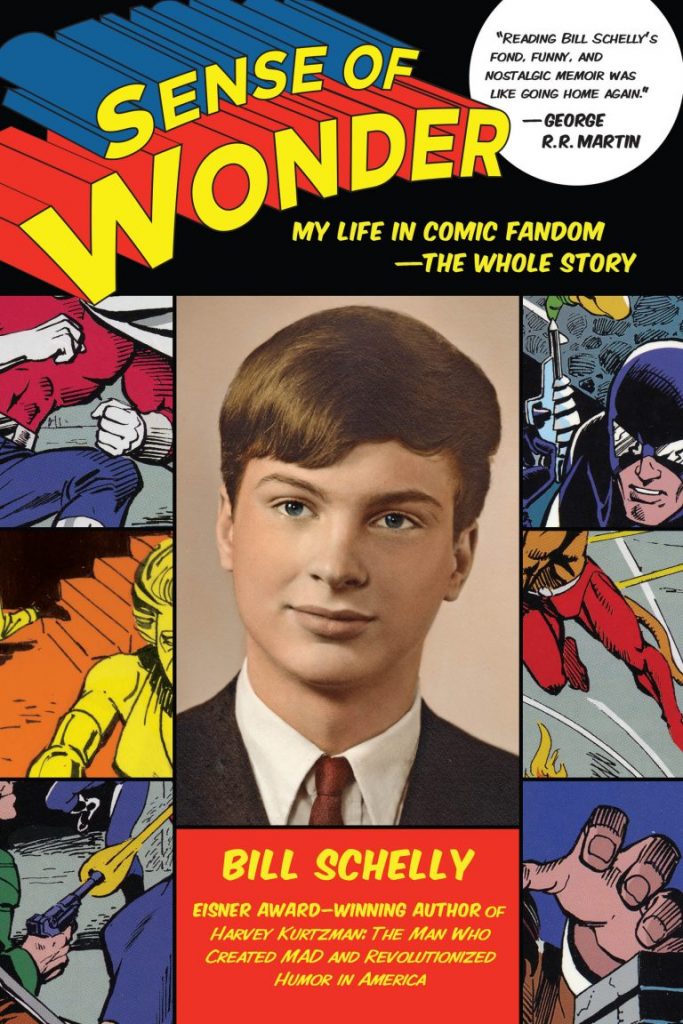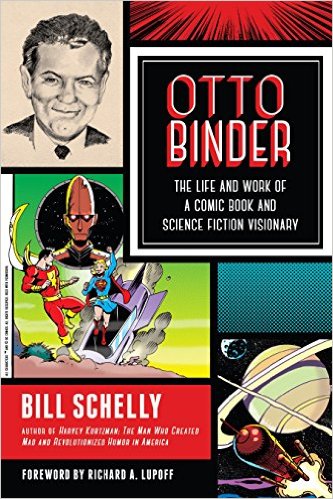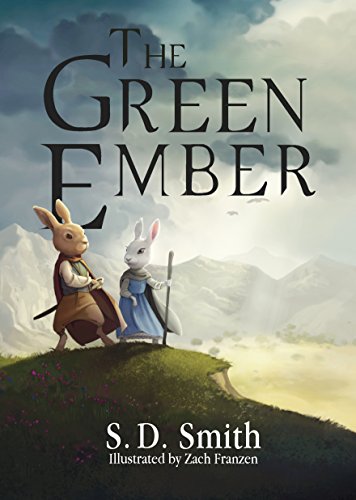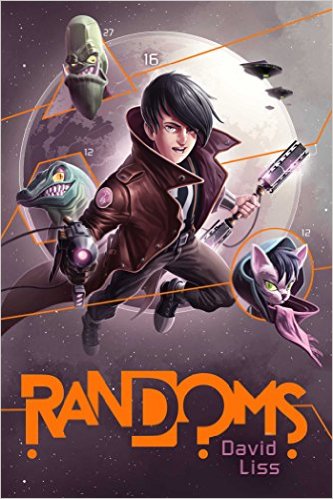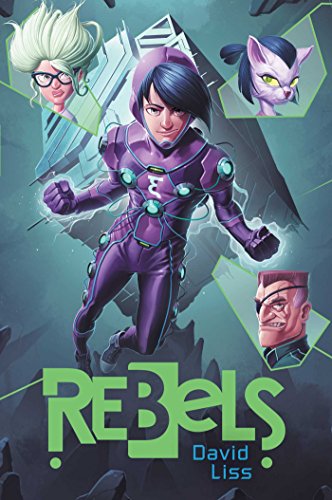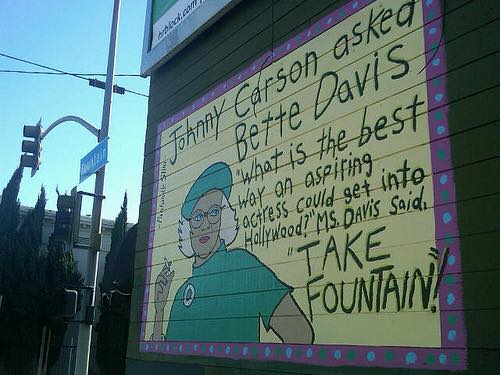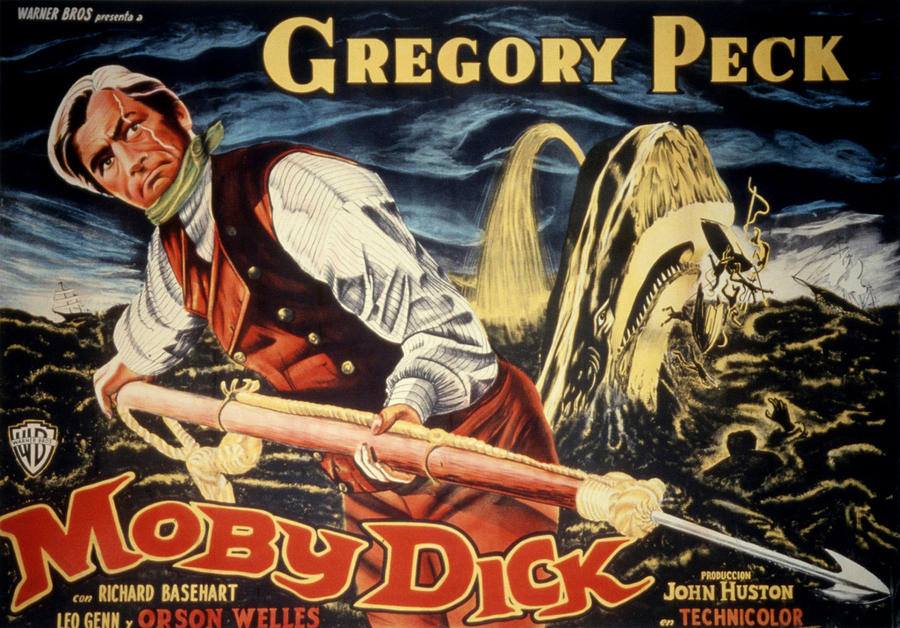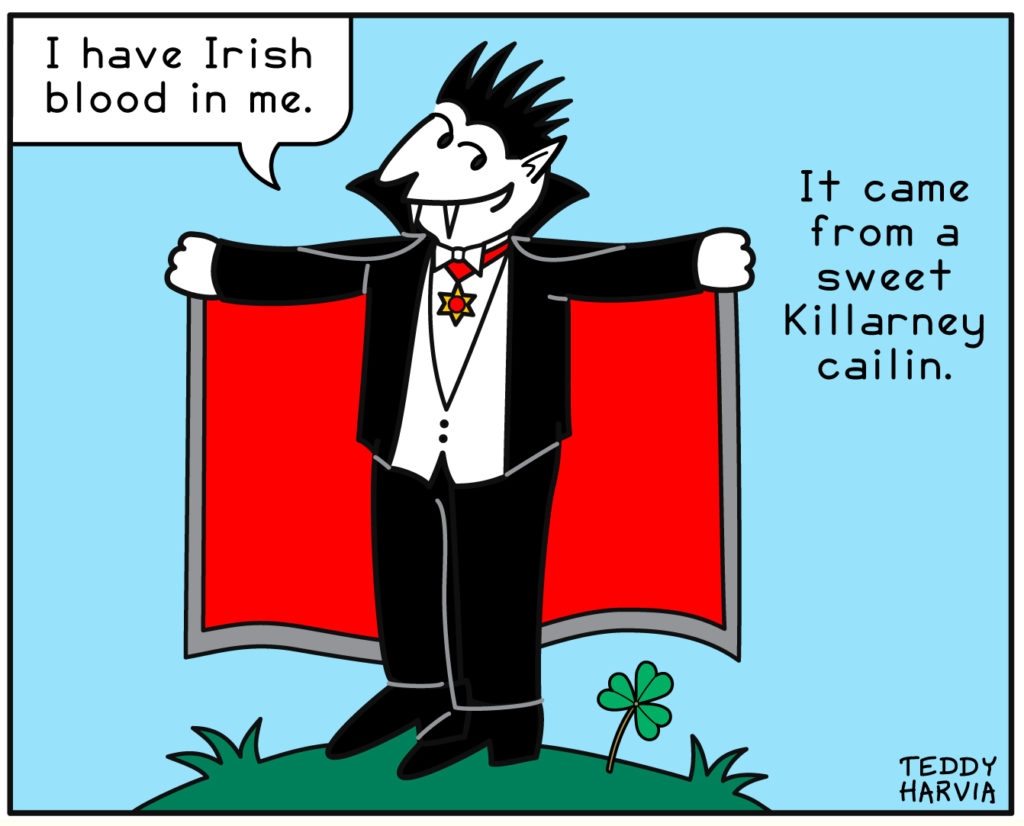
(1) SOUND AND FURY. Locus Online has a fine summary of recent developments in “Audible’s Caption Controversy”.
Audible, Amazon’s audiobook publishing arm, announced plans for “Audible Captions,” a feature that displays the text of a book along with the narration on listener devices. Audible said the feature would be “available on hundreds of thousands of audiobooks at launch” – a declaration that was met with surprise and alarm by publishers who haven’t licensed the rights to publish such text to Audible. Publishing the text without permission would likely be a violation of copyright.
The Association of American Publishers filed a lawsuit on August 23, 2019 in the southern district court of New York to block the program….
(2) RECEIVED WISDOM. New “Worldcon Runner’s Guide Updates” are posted on the WSFS web site.
The Worldcon Runner’s Guide Committee has issued updates to several guide sections. These are now available on the main Guide page. The sections that have been updated are:
(3) JOE ON JOE. In a teaser for the Joe Lansdale documentary — “All Hail the Popcorn King: Joe Hill talks Lansdale inspiration”
Joe Hill is currently one of the hottest scribes around. His popular book, NOS4A2 has been adapted for an AMC series. Netflix will be partnering with producer Carlton Cuse on a 10 episode version of Hill’s comic book series, Locke and Key.
Recently, the busy writer sat down with Hansi Oppenheimer, the director of the upcoming documentary on Joe Lansdale, All Hail the Popcorn King. He discussed his deep admiration and fondness for his fellow author.
As an impressionable 13-year-old, Hill read Lansdale’s The Drive In and was transformed. He made such a deep connection with the novel that he felt that it was written especially for him. Which is one of the best compliments to receive when you are a wordsmith. It is what you strive for, to make an impact on your readers.
(4) AUTUMN LEAVES. Entertainment Weekly’s Kristen Baldwin includes a couple of genre works on her list of “The 8 must-watch new TV shows this fall”.
First, a disclaimer: With approximately 183 TV series premiering every hour in America, it would be all but impossible for any one critic to view all the new fall shows. That said, I was able to screen 31 of the programs making their debut in the coming months — and now that my eyes have readjusted to sunlight, I humbly submit this report.
One of them is Evil. The other is —
Watchmen
Oct. 20, 9 p.m., HBO
Confession: I know nothing about Watchmen. Never read the comic or saw the (polarizing) 2009 film. I had to pause many times while watching the pilot so I could look up characters and backstories on Wikipedia. With that said, I can’t wait to see more. Set 30 years after the comics, Watchmen takes place in a world where police hide their identities due to terrorist attacks and a long-dormant white supremacist group wants to start a race war. The show is expensive-looking but not hollow. There’s a humanity to the characters that is often lacking in comic book adaptations, due in large part to the exceptional cast, including Regina King, Jeremy Irons, and Don Johnson. Hardcore fans will have to make up their own minds, but this novice is intrigued.
(5) FOUNDATIONS OF HORROR FILMMAKING. SYFY Wire thinks fans should go ape over “Fay Wray’s underappreciated career as a genre queen”.
Fay Wray is remembered best for her role in the original King Kong as Ann Darrow, the woman who is kidnapped and carried about like a rag doll while Kong goes on his city-wide rampage. Yet she had a much longer career than just that one film, spanning several different genres and working for more than half a century. In her early years in Hollywood, she would have been better known for a series of westerns she had done in the silent era than anything else, but even at that, she’d also been in several comedies and romances. Wray was a working actor for most of her life, so her filmography is mostly all over the place.
Of course, we’re mostly here for Wray’s career as a Scream Queen. In the time leading up to what would become her definitive role, she starred in a series of low-budget horror movies that are now considered as much a part of classic horror canon as Frankenstein or The Mummy….
(6) GROWING UP GRYFFINDOR. [Item by Martin Morse Wooster.] Behind a paywall at Financial Times, Alice Ross discusses how YA authors in Britain are increasingly interested in politics.
The second legacy often credited to Harry Potter is that the series helped to form a generation of liberal thinkers. In Harry Potter and the Millennials (2013), political scientist Anthony Gierzynski published th results of his survey of more than 1,000 college students. He concluded that readers of Harry Potter were more often to diversity and more politically tolerant than non-fans…
…Modern authors of children’s books both in the UK and the US–many of whom hail from the Harry Potter generation–tend to feel strongly about social or moral issues, and they bring this into their writing.
‘I really do believe that all writing is political and you have to try to do that; you are not just bringing yourself to your work,’ says Kiran Millwood Harris, whose debut novel The Girl of Ink and Stars won the 2017 Waterstone Children’s Book Prize. ‘I see some people saying, ‘I don’t want to be political’ but actually now it’s kind of immoral not to speak up or take a stand as some people don’t have that luxury. Her latest book The Way Past Winter deals with the environmental crisis, increasigly a topic coming up in children’s books.
(7) DYSTROPIA. Michelle Goldberg’s opinion piece “Margaret Atwood’s Dystopia, and Ours” in the New York Times coincidentally shows how hard it is for fictional commentary to keep pace with cultural changes.
…And it’s not just in America that truth has lost its political salience. Naked censorship continues to exist, but it’s augmented by the manipulation of search algorithms, and by trolls and bots harassing dissidents and spreading misinformation and conspiracy theories. Truth is less suppressed than drowned out. Contemporary propaganda, write P.W. Singer and Emerson T. Brooking in “LikeWar: The Weaponization of Social Media,” “is colorful and exciting, reflecting the tastes of the digital age. It is a cocktail of moralizing, angry diatribes, and a celebration of traditional values, constantly mixed with images of scantily clad women.” There’s a solemn churchlike hush in Gilead. Modern authoritarianism is often as lurid and cacophonous as a casino.
Dystopian fictions that extrapolate from this shift are starting to appear. (Though young adult novels had a head start: “The Hunger Games” foresaw the nightmare of fascism run as a reality show.) There’s a scene in “Years and Years,” a recent series co-produced by HBO and the BBC, where Vivienne Rook, the sly British demagogue played by Emma Thompson, is asked about the spread of fraudulent, digitally created videos of her political rivals making inflammatory statements. “Oh, of course they’re fake videos. Everyone can see they’re not real,” she says to an interviewer. Then she adds, with faux concern, “All the same, they really did say those things, didn’t they?” Soon after, she is elected prime minister…
… “Writing dystopias and utopias is a way of asking the reader the question, ‘Where do you want to live?’” Atwood said when I talked to her last year….
(8) SCHELLY OBIT. Comics fan, writer, and historian Bill Schelly (1951-2019) died September 12 of cancer. His books included The Golden Age of Comic Fandom (1995; rev. ed. 1999) published by his own company, Hamster Press, Harvey Kurtzman, The Man Who Created “Mad” (Fantagraphics, 2015), and his autobiography Sense of Wonder, My Life in Comic Fandom – The Whole Story (North Atlantic Books, 2018). Carl Slaughter recommended Schelly’s biography Otto Binder: The Life and Work of a Comic Book and Science Fiction Visionaryto Filers in 2016.
Many friends have left comments on his Facebook page. Neil Caputo penned “Bill Schelly: In Tribute”, Mark Evanier ends his appreciation “Bill Schelly, R.I.P.” at News From Me by saying:
Bill was quite good…just a lovely, talented man. I’m sure going to miss talking to him on the phone and at conventions, and I’m sorry we aren’t going to get all the other books that he would have written. Such a loss.
(9) TODAY IN HISTORY.
- September 15, 1965 — CBS debuted Irwin Allen’s Lost In Space as “The Reluctant Stowaway” episode seeing the Jupiter 2 being sabotaged by Dr. Smith who became part of the inhabitants. The theme music was composed by a little known composer then credited as, Johnny Williams.
(10) TODAY’S BIRTHDAYS.
[Compiled by Cat Eldridge.]
- Born September 15, 1890 — Agatha Christie, or to giver her full name of Dame Agatha Mary Clarissa Christie, Lady Mallowan, DBE (née Miller). ISDB lists her Harley Quin tales as being genre as they think the lead character is supernatural though no reviewers I can find think that he is. Anyone here who has read them? They also list one Hercule Poirot story, “The Big Four”, as genre – it apparently involved the use of atomic explosives in a 1927 story. Weirdly iBooks has almost nothing by her but Kindle has works beyond counting. (Died 1976.)
- Born September 15, 1925 — Carlo Rambaldi. He won Academy Awards for Best Visual Effects in 1980 and 1983 for, respectively, Alien and E.T. the Extra-Terrestrial which was for the mechanical head-effects for the Alien creature and the design of the E.T. himself. The 1976 version of King Kong earned him an Oscar for Best Visual Effects as well. He also worked on Dune, Conan the Destroyer, King Kong Livesand films you’ve likely never heard of such as Fire Monsters Against the Son of Hercules. (Died 2012.)
- Born September 15, 1940 — Norman Spinrad, 79. I’ll admit that the only novel I’ve read by him is Bug Jack Barron. My bad. And I was fascinated to learn he wrote the script for Trek’s “The Doomsday Machine” episode which is an amazing story. So how is that he’s never won a Hugo?
- Born September 15, 1943 — John M. Faucette. He published five novels and one short story. He left seven unpublished novels in various states of completion at his death. Two of his novels; Crown of Infinity and Age of Ruin, were published in the Ace Doubles series. None of his works are in print in digital or paper format currently including his Black Science Fiction anthologywhich he as an African-American SF writer was very proud of. (Died 2003.)
- Born September 15, 1946 — Howard Waldrop, 73. I think that the The Texas-Israeli War: 1999 which he wrote with Jake Saunders is my favorite work by him. His short fiction such as “The Ugly Chickens” which won The World Fantasy and Nebula Awards is most excellent. A generous selection of his short fiction and novellas are available at iBooks and Kindle.
- Born September 15, 1956 — Tommy Lee Jones, 73. Best known as Agent K in the Men in Black franchise, he’s has done other genre with the first being in Batman Forever as Harvey Dent / Two-Face. He’s Colonel Chester Phillips in Captain America: The First Avenger as well.
- Born September 15, 1962 — Jane Lindskold, 57. My first encounter with her was the Zelazny novel she finished, Donnerjack. It’s excellent though how much is Zelazny is open to vigorous debate. Of her own novels, I recommend The Buried Pyramid, Child of a Rainless Year and Asphodel as being very good.
- Born September 15, 1987 — Christian Cooke, 31. He’s Ross Jenkins, a UNIT Private in two Tenth Doctor stories, “The Sontaran Stratagem” and “The Poison Sky”. Genre wise, He’s also been Luke Rutherford-Van Helsing in Demons, a six-part series from the Beeb, and he’s Frederick Beauchamp in the second season of The Witches of Eastwick.
- Born September 15, 1960 — Kevin Roche, 59. Chaired Worldcon 76 in San Jose (2018). Prior to that he co-chaired Westercon 66 in Sacramento in 2013 and chaired Costume-Con 26 in San José in 2008. He’s a veteran costumer and masquerade emcee, who co-directed the 2011 Worldcon’s Masquerade as well as Masquerades at Anime Los Angeles, Westercon, and BayCon. Roche is a research scientist at IBM Research Almaden. He also is the editor of Yipe! The Costume Fanzine of Record.
(11) COMICS SECTION.
- Bizarro shows what happens when aliens reach the border.
(12) CLASSIC REVIVED? The Far Side web page made this announcement:
Uncommon, unreal, and (soon-to-be) unfrozen.
A new online era of The Far Side is coming!
(13) SCOOBY TAXONOMY. Eleni Theodoropoulus, in “How Scooby Doo Revived Gothic Storytelling for Generations of Kids” on CrimeReads, says that Scooby-Doo is really a Gothic series rather than mystery, as she discusses how the show’s supernatural elements made it so popular.
.. From its first episode, “What a Night for a Knight,” Scooby Doo establishes the very atmosphere that is integral to the gothic genre. The episode opens onto an empty country road under a full moon when a pickup truck rolls into view. The crate in the back opens. An armored knight rears his head and fixes his glowing eyes on the driver. Danger is imminent. “What a nervous night to be walking home from the movies, Scooby Doo,” says Shaggy, echoing the viewer’s sentiment. Moments later they come across the abandoned pickup truck where the suit of armor sits behind the wheel. Pristine, it shines in the moonlight. Suddenly, the head of the armor rattles and tips over, landing at their feet. Boy and dog chuckle nervously before they run away in what will become their signature manner of dealing with problems. The next two seasons of Scooby Doo, Where Are You! follow in this same vein, resting on a balance between suspense and fear, mystery and horror.
Instrumental to evoking these feelings in the viewer was less the plot itself than the atmosphere framing it….
(14) PLAYING FOR TIME. Cecilia D’Anastasio relates the “Confessions Of A Teenaged Strip-Mall GameStop Delinquent” at Kotaku.
… Once a week, I’d enter that GameStop to ask whichever bored employee was manning the place when they’d get Super Smash Bros. Brawl for the Wii, and whether they’d give it to me early. I wanted to play a video game before anybody else, and I wanted it to be Super Smash Bros. Brawl so I could get really good and nobody would ever be able to catch up. Certainly, I felt, GameStop had that power and would be generous with it. Theo, who worked at that GameStop, told me many times: Cecilia, it comes out in December. Each time, I’d fuss, forget what he said, and distract myself with some other game they had pre-installed on the Wii kiosk in the store. Then I’d go in again the next week….
… Back then, I was usually grounded. Each sentence lasted for a week, two weeks, a month, and eventually, it all blurred into an endless, sprawling, dusty-grey dream. My mom theorizes that I’d purposefully do bad teen stuff so she’d ground me. That way I could avoid my increasingly complicated friendships at the strip. Time would spin on there without me: break-ups, fights, pranks, insults. In the world of Final Fantasy XI, I had comrades who needed me. As my dedication to leveling up heightened, so too did my in-game friends’ expectations of me as a community member. A couple times a week, one would reach out to me on a forum, or on Myspace, or eventually even through text message, asking me to log on and help them with some level grinding, some quest.
Then came the emotional labor. As a teenager, I did not have the tools to counsel the cat girl FlameKitty, the avatar of an older man, through his joblessness, his unpaid bills, his loneliness. I could not offer authoritative advice after a married mother of five fell in love with another Final Fantasy XI companion, whose shadowy forum profile picture featured a katana. …
(15) A FAMILIAR FACE. The Waterloo (ONT) Public Library is doing a sff author panel October 5 – details on the programs calendar. You should recognize at least one of the participants.
James Bow moderates a panel of five other authors talking about Canada as a setting for science fiction and fantasy novels. Why should New York, Los Angeles, or London have all the fun? Canada boasts some of the world’s best science fiction and fantasy writers, and some of the most innovative tech sectors. We have a part to play in the wider science fiction community, and we intend to represent.
Science Fiction and fantasy writers Erin Bow, James Nicoll, Leah Bobet, James Alan Gardner and (maybe – still to be confirmed ) Sarah Raughley join moderator James Bow in a free-flowing discussion of what Canada can contribute and has contributed to science fiction and fantasy. The event at the Main library will be followed by the launch of James Bow’s new urban fantasy novel, “The Night Girl”. Books will be sold and authors are available to sign copies. Everyone welcome
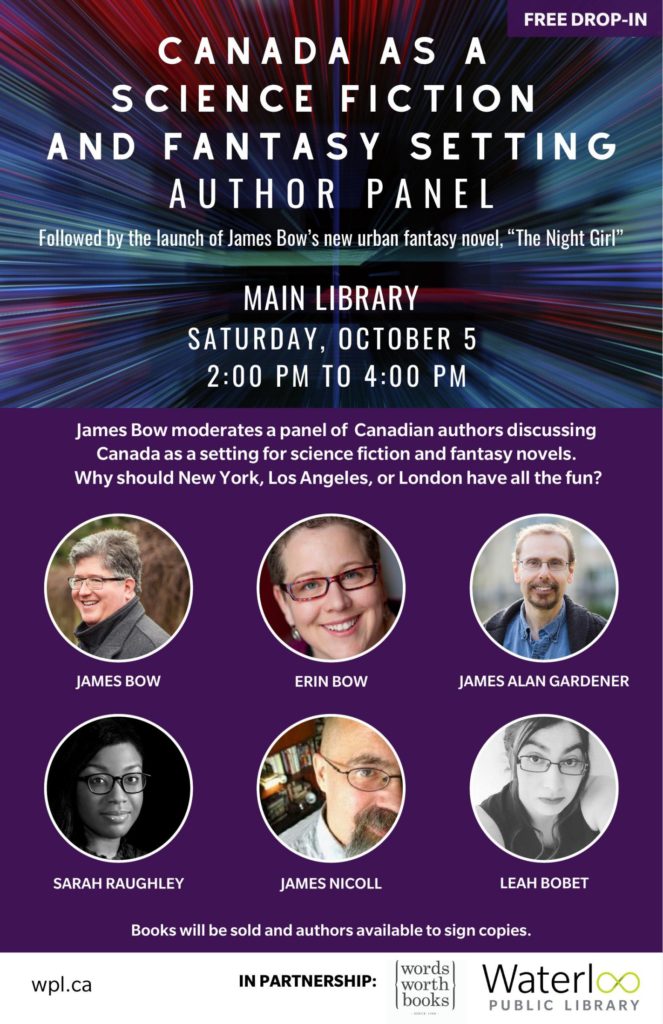
(16) BOARD OF EQUALIZATION. FastCompany thinks “‘Ms. Monopoly’ is not as patronizing as Hasbro’s version for millennials, but it’s not empowering either”.
…However, last year, Hasbro shook the table with Monopoly for Millennials, which critics universally bemoaned as an “insulting experience.” The game’s tagline of “Forget real estate. You can’t afford it anyway” seemed to signify that Hasbro was perhaps more interested in wooing back older players (who also like dunking on young adults) rather than genuinely appeal to a new generation discovering the joys of game night. (The reasons why millennials can’t afford homes are varied and complex and have nothing to do with pouring our income into artisanal coffee and avocado toast—xoxo, a millennial.)
Then just last month there was Monopoly for Socialists, another widely panned bit of pandering to older people who might still be afraid of the s-word that the game-centric site Polygon dubbed “horrible, even as a parody.” The release also led to the surely unintended wider dissemination of Monopoly’s roots as a game created by a woman named Elizabeth Magie to spread the message that landlords and real-estate hoarding are societal ills, yet it was appropriated by men and turned into a pro-capitalist pastime.
Now, there’s Hasbro’s latest addition to the Monopoly family: Ms. Monopoly. Its tagline is “The first game where women make more than men.”…
(17) TRACKING DOWN BARGAINS. Contact Mr. Muffin’s Trains for all your Hell-bound “O” Gauge model train needs….
(18) VIDEO OF THE DAY. Walk The Dog Before I Sleep on Vimeo is an animated music video by Drew Christie of a song by Brian Cullman.
[Thanks to John King Tarpinian, Martin Morse Wooster, James Davis Nicoll, Chip Hitchcock, Cat Eldridge, JJ, Alan Baumler, Mike Kennedy, Steve Johnson, and Andrew Porter for some of these stories. Title credit goes to File 770 contributing editor of the day Jack Lint.]






